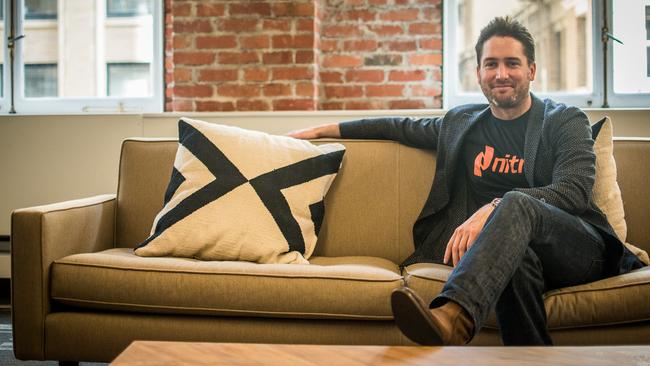More ventures sold on remote work post-coronavirus
Businesses and technology start-ups are joining tech giant Twitter in making wholesale moves towards remote work.

Australian businesses and technology start-ups are joining tech giant Twitter in making wholesale moves towards remote work, with many declaring the shift will be permanent even after the COVID-19 pandemic has cleared.
Sydney tech company Atlassian, which has thousands of employees globally, confirmed that it would direct its staff to work from home at least until the end of the year, and that some may choose to keep working remotely.
“The health and safety of more than 4500 Atlassian staff around the world is our first priority. Rather than rush back to the way things were, we’re taking the opportunity to provide flexibility and ensure our people have all the tools they need to work remotely,” the company’s chief people officer, Tami Rosen, told The Weekend Australian.
“If some offices are in a position to reopen sooner we will look at ways we can support people who prefer to work from an office, but we won’t require anyone to do so this year.”
A new report, from analyst firm Telsyte in conjunction with productivity software maker Zoho, found that nearly half of small businesses said they preferred to work outside of a central office when possible, including working from home.
The report found almost one in three small businesses provided remote working opportunities even before the COVID-19 lockdowns, with remote working more prevalent in regional Australia. Businesses in the arts and recreation sectors are embracing remote work more than any other industry, with nine in 10 (89 per cent) either allowing it or intending to, followed by education and training industries (79 per cent), and information media and telecoms (79 per cent).
It also found the daily commute costs small business workers $10.50 a day, equating to considerable savings when annualised, even if only for a few days a week.
Twitter this week said it would allow employees who could work remotely to do so indefinitely, as it reels from the coronavirus outbreak and plots a shift towards a more distributed workforce.
The social media company, led by chief executive Jack Dorsey, will not re-open most offices before September and employees can choose whether or not to come to the facilities.
“We were uniquely positioned to respond quickly and allow folks to work from home given our emphasis on decentralisation and supporting a distributed workforce capable of working from anywhere,” a Twitter spokesman said.
“The past few months have proven we can make that work. So if our employees are in a role and situation that enables them to work from home and they want to continue to do so forever, we will make that happen.
“Opening offices will be our decision, when and if our employees come back will be theirs.
“With very few exceptions, offices won’t open before September. When we do decide to open, it also won’t be a snap back to the way it was before.”
New normal
Sam Chandler, CEO and founder at ASX-listed Nitro Software, said he had deployed extra monitors, desks and chairs as well as headsets and webcams to his workforce for them to be as productive as possible working from home.
He said Nitro’s “new normal” would be more remote work, and his workforce of 200 could feasibly work remotely indefinitely.
“We use a myriad of solutions every day like Office 365, Salesforce, Microsoft Teams, Slack, RingCentral, JIRA, Confluence, and of course the Nitro Productivity Suite,” he said. “We don’t expect any Nitro office to return to normal operations before 2021. However, we may see some phased return to the offices as the situation evolves, team and region-dependent, although not before September. Business travel and in-person events will remain suspended through to September; we’ll review on a case-by-case basis after that.”
Peter McCarthy, founder of accounting software outfit myprosperity, said remote work would be a big part of his company’s future. His team is relying on technology from Zoho — which has recently launched a suite of free apps dubbed Remotely — as well as Slack and Zoom. “Of course, the team does miss human contact and the camaraderie of being together as a team, but when ‘normality’ returns we’re going to operate what we call a hybrid model, where the team can work remotely for two or three days a week,” he said.
“We’re also reviewing our approach to working hours, and staggering not only where people work, but when they work. This is all based on feedback from the team over the last few months. We understand that the way we work is changing, and if we can be more flexible in how and where we allow them to work, then we will do so.”
Every employee had interests and hobbies outside of work, and allowing them to work remotely had allowed them to get more from their work/life balance.







To join the conversation, please log in. Don't have an account? Register
Join the conversation, you are commenting as Logout